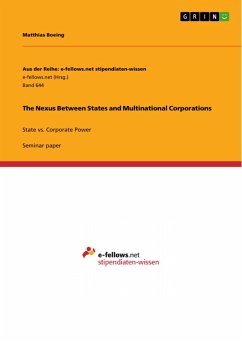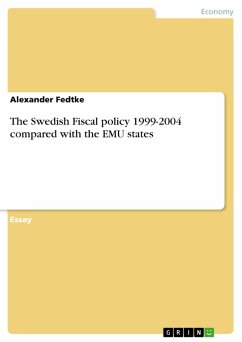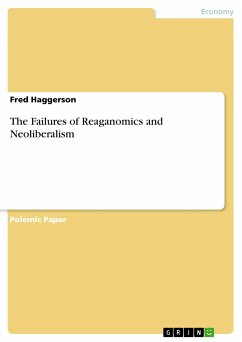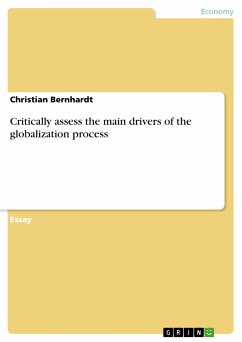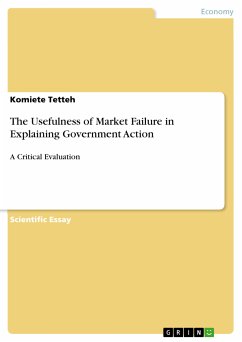Seminar paper from the year 2013 in the subject Business economics - Economic Policy, grade: 1.0 (Distinction), The University of York (The York Management School), course: International Business and Strategic Management, language: English, abstract: One of the most discussed developments in contemporary political economy is the evolving relationship between states and multinational corporations. With its origins in the Peace of Westphalia in 1648, states have long been the most powerful force in economy. However, with the end of the Cold War around 1990 and the evolution of liberalism and neo liberalism, states began to pull back from former state-ruled political decisions. The ideas of the Washington Consensus, mainly shaped by the American economist Milton Friedman and the Chicago School, were voluntarily adopted by many states worldwide, promoting liberalization of markets and trade as well as financial deregulation. The state has repositioned itself as a passive or acquiescent actor within the economy, handing over power to global markets. Consequently, many scholars argue that multinational corporations (MNCs), as another major actor within the economy, have gained power, threatening the sovereignty of states. However, the discussion between different scholars varies widely in terms of whether the state has lost its entire power or still remains a powerful and equal counterpart to MNCs. This essay discusses the nexus between states and MNCs. Furthermore, it will examine what impact institutions have on this relationship considering evidence from recent times. Consequently, it will provide concepts on how to ensure a better functioning of the global economy whilst bearing in mind different perspectives.
Dieser Download kann aus rechtlichen Gründen nur mit Rechnungsadresse in A, B, BG, CY, CZ, D, DK, EW, E, FIN, F, GR, HR, H, IRL, I, LT, L, LR, M, NL, PL, P, R, S, SLO, SK ausgeliefert werden.

